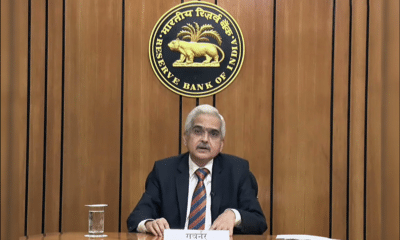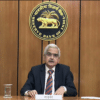RBI would prefer Modi Govt. to borrow and give money towards GST to States
Kerala Finance Minister Thomas Isaac said “There were serious differences of opinion. I challenged the distinctions. I am willing to consider borrowing by states, but full compensation must be paid,”
The Reserve Bank of India (RBI) is very much likely to prefer that the Center borrows and gives money to the states towards goods and services tax (GST) compensation. This comes after the government proposed two options to meet the GST shortfall in the 41st meeting of the Goods and Services Tax (GST) Council on Thursday.
The first option is a ‘special window’ for borrowing the projected GST shortfall of Rs 97,000 crore and an amount that can be repaid after five years of GST implementation ending 2022 from the compensation cess fund. The second option is to borrow the entire projected shortfall of Rs 2.35 lakh crore under a special borrowing window facilitated by the RBI.
Nirmala Sitharaman, Union Finance Minister, said the borrowing would be under a special dispensation which would be facilitated by the central government at G-sec linked rates. She said the Rs 97,000 crore option comes with the additional incentive of 0.5 per cent relaxation in FRBM for states in the current fiscal. Sitharaman explained that it would be freed from conditions announced earlier as part of the pandemic package linked to the implementation of reform measures such as universalisation of ‘One Nation One Ration card’, ease of doing business, power distribution and augmentation of urban local body revenues.
Also read: Former RBI Governor Raghuram Rajan: Focus on protecting the economy not what ratings agencies think
Experts say that extension of compensation cess fund beyond the transition period of five years would affect the revenue potential of the central government. This is because, in the absence of the fund, the cess rates were to be merged into GST. The central government could claim the proceeds of the tax as central GST component as opposed to compensation cess proceeds which are reserved solely for states. Arun Jaitley, the former union finance minister, in 2016 had said that any surplus left in the cess compensation fund after five years would be shared between the Center and the states and that there could be a review every year by the Council to examine what cesses could be subsumed into GST tax.
Also read: RBI’s Monetary Policy Committee wants inflation to be kept within mandated range
In the GST Council meeting, most state ministers pushed for the option for borrowing by the Center to bridge the revenue gap. Kerala Finance Minister Thomas Isaac told the Indian Express that they are enforcing a cut in compensation and bringing in an unconstitutional distinction. “There were serious differences of opinion. I challenged the distinctions. I am willing to consider borrowing by states, but full compensation must be paid,” he said. “We will not accept any option if the states are not compensated. The entire borrowing must be accommodated with an increase in the borrowing limit.” Punjab Finance Minister Manpreet Singh Badal questioned differentiating between pre-COVID and post COVID. He said borrowing would translate into mortgaging of the future to live for the present.
Soumya Kanti Ghosh, State Bank of India group chief economic adviser, told ET that RBI is likely to prefer that the Center borrows and gives money to states. Abheek Barua, HDFC Bank chief economist, on similar lines said RBI would be reluctant to monetise. He said the special mechanism would essentially mean the private placement of debt with RBI. As such the central bank would prefer Center borrowing from the market and giving to the states and recovering that later from compensation cess.








































